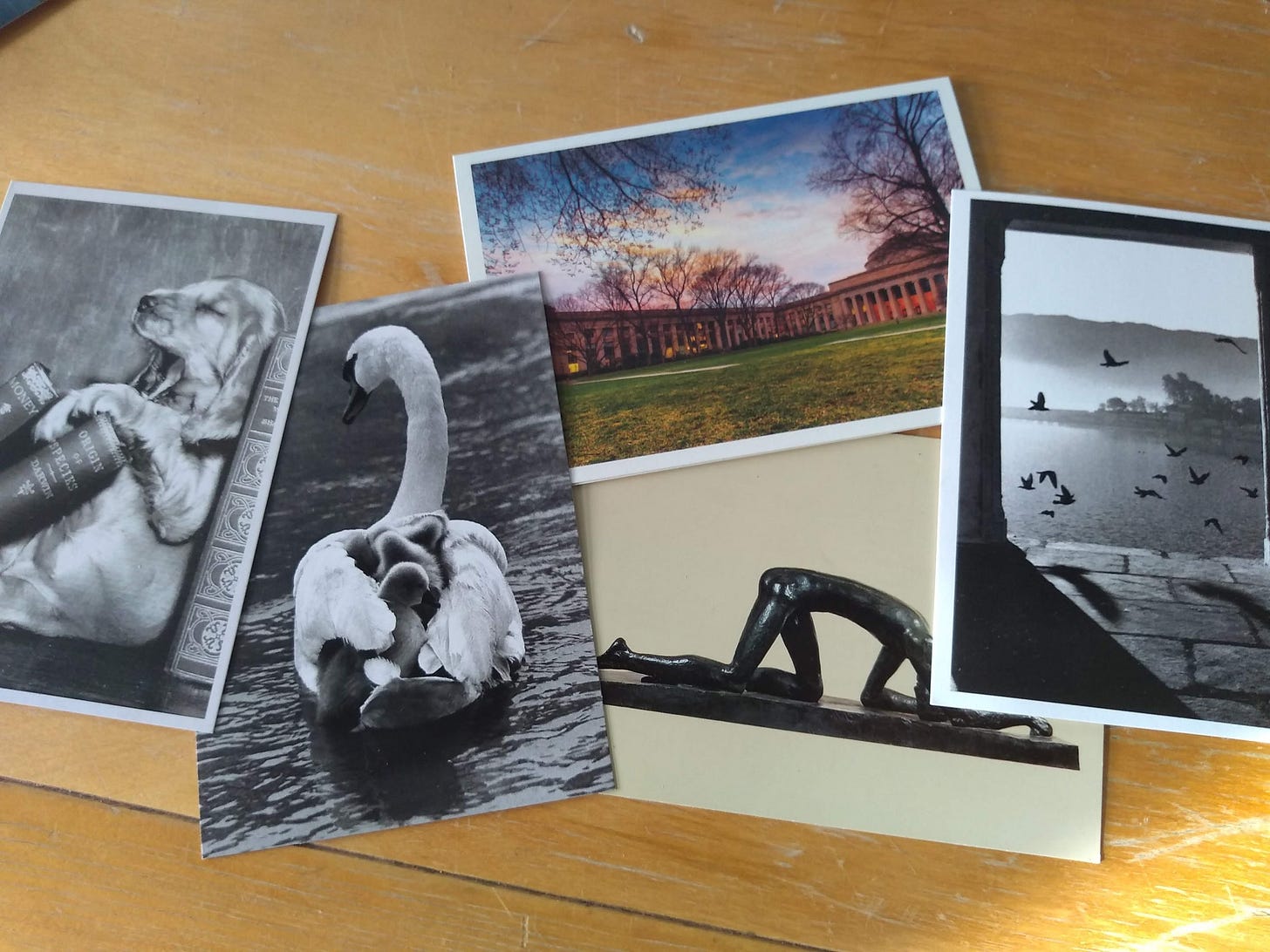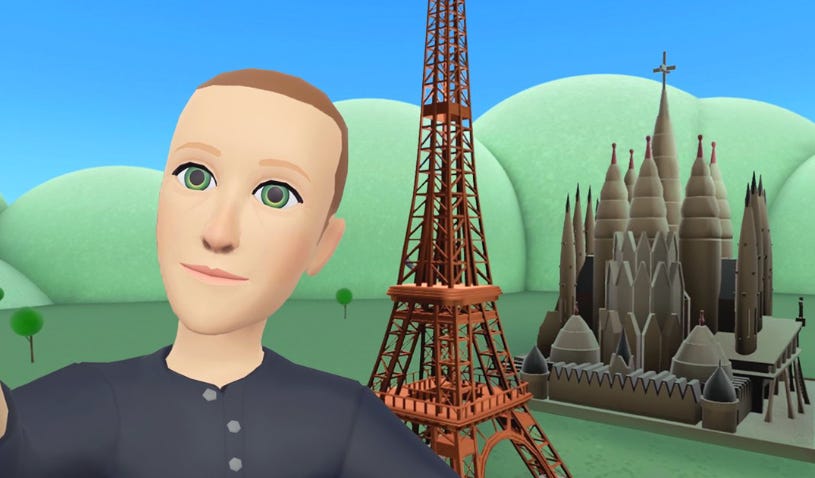Letters, distance, and being distant
The strangeness of living in the moment instead of in a perpetual long-distance conversation.
Earlier this summer, when I sat down to write my vacation-time letters after a couple of changed/ruptured interpersonal dynamics, I realized there was no one I urgently wanted to write to. This lack of something suddenly highlighted the presence of an existing behavior I had been in denial of — being distant.
Letters are a lovely medium. They are also tied to distance. I heavily use writing, texting, emails, journaling, and such as a medium to disappear from my present surroundings, often through ongoing conversations with close friends located far away. But for the first time in over eight years, I was not in a perpetual long-distance conversation. I had nowhere to disappear to. So I tried to be present.
It’s been unsettling, but I’m learning.
—
I love writing letters. Most people I know don’t write too often. It’s understandable - a quick text, or an email if you are feeling particularly verbose, can be enough. Letters are long and slow. Here’s what I mean.
Long. At MIT, I’ve noticed some disdain for long-form writing. Essays, journaling, research papers. “Ugh.”
Well, I love writing these things.
For me, letter-writing takes longer because of a fascination with language. My collection of postcards and letters now includes a message in Czech cursive, a letter ‘in French’ but written entirely in phonetic transcription, a message hidden in a few bars of sheet music, and a postcard with two lines each in Urdu, Hindi, and English — you get the flavor. I get a lot of joy from composing and decoding these.
Naturally, it takes a bit longer than sending someone a text.
When someone writes back, it is an act of care. Some of my correspondents make the initial investment: obtaining postage materials, learning how many stamps are required to send X grams of words to Y location from Z, and scouring the neighborhood for drop boxes or braving awkward post-office-virgin encounters. Usually, whenever I move to a new location, for whatever period of time - this is one of the first time investments I make.
Slow. In the era of instant messaging, composing a letter can be difficult. I need to make sure that whatever I’m saying is going to be relevant by the time the receiver actually has my letter. Letters I’ve received skip the small talk, no ‘how was that presentation yesterday?’ More of ‘here is some accumulated wisdom I’ll pass to you,’ some of ‘here’s what I think about Le Petit Prince compared to Winnie-the-Pooh,’ perhaps ‘I enclosed a fresh rose petal, but it has probably withered, like our love.’
The little idiosyncracies of handwritten letters (even postcards) make me feel like I have been delivered a little part of the correspondent themself. My mom’s handwriting. My dad deciding to end his letter when his pen visibly runs out of ink. A nerdy friend drawing out email-esque quote-replies with pen in his letters to me.
← seriously, he would draw these lines to signify parts of my letter that he was responding to…
Even though I’d be virtually connected with people all the time - friends, family, acquaintances, partners - I’d still write letters, and sometimes receive letters back. The letter was a way to express pull up memories, to say wishy-washy things that were far too embarrassing for a text, to painstakingly cipher the writing even if the content was absolutely harmless.
At the same time, for me, letter-writing was a symptom (feature? it is not a bad thing) of something larger about my personality - a tendency to disappear from the current moment.
When I was younger, it was books or daydreams. I talked to my share of imaginary friends, and I found these conversations very satisfying.
Eventually, I also made real friends. Eventually, people moved far away from each other. Ever since I discovered the possibilities of keeping in touch with people who are far away, large portions of my time have been spent emailing, texting, or writing snail mail. Otherwise, I lose myself in a book, piece of music, or just my own thoughts. I often find myself fully silent, on a completely different train of thought, at a dinner table full of friends.
My dad would sometimes advise me to spend less time talking to ‘virtual people’ and more time in the Real World with ‘real people’. This made no sense to me generally, since my ‘virtual people’ were very real.
(Re. getting told off for being on my phone but never for the letters — I wonder if letter-writing is to instant messaging as books are to binging a TV show. The second in each pair is generally frowned upon. The first is encouraged… but isn’t it kind of an older version of the same behavior?)
This summer, I think I realized what my dad meant. For the last third of my life, although I kept myself busy with many kinds of experiences, there was the constant undercurrent of an ongoing conversation. Even as I attended social gatherings or spent time with my family, there was always something to do, somewhere to be, and — of course — someone distant to talk to. Special moments I experienced alone immediately became a to-do list in my mind: ‘to-do: share this feeling with person X’.
This is not a criticism. This is an observation. I’ve gotten used to never-ending conversations, so much that I find comfort in them. Letters have become an accessory of those conversations, rather than a meaningful conversation in themselves.
So, when I sat down to write letters this summer, and realized there wasn’t anyone I wanted to write to in particular… it was strange. It was not at all dramatic, but it was a moment. Something was different. Without abstract people miles away to whom I could direct my social energy, I needed to either engage with people around me or deal with the simmering build up of emotion.
This occurred when I was living with my family (if I hadn’t been, I would’ve just written to them) in a suburb in the middle of Nowhere, Texas. At first, I was really uncomfortable with the internal build up of emotion. Eventually, I started going on long evening walks with my parents. We talked. We laughed. We cried. All of us opened up in ways we hadn’t before.
I certainly opened up. Until that point, if there was anything significant on my mind, I would release it easily into an ongoing distant conversation. Sharing things with people immediately around me required too much context or social navigation. But as I spoke increasingly with my parents and brother, I realized I can do it, and it can be really nice.
I think it makes me more comfortable with myself.
I still write letters.
—





